From the Shtetl
to the Lecture Hall
Jewish Women and Cultural Exchange
Luise Hirsch
Studies in Judaism
University Press of America, Inc.
Lanham Boulder New York Toronto Plymouth, UK
Copyright 2013 by University Press of America, Inc.
4501 Forbes Boulevard, Suite 200, Lanham, Maryland 20706
UPA Aquisitions Department (301) 459-3366
10 Thornbury Road, Plymouth PL6 7PP, United Kingdom
All rights reserved
Printed in the United States of America
British Library Cataloguing in Publication Information Available
Library of Congress Control Number: 2012946233
ISBN: 978-0-7618-5992-5 (paperback : alk. paper)ISBN: 978-0-7618-5993-2 (electronic)
 The paper used in this publication meets the minimum requirements of American National Standard for Information Sciences Permanence of Paper for Printed Library Materials, ANSI/NISO Z39.48-1992.
The paper used in this publication meets the minimum requirements of American National Standard for Information Sciences Permanence of Paper for Printed Library Materials, ANSI/NISO Z39.48-1992.
Studies in Judaism
EDITOR
Jacob Neusner
Bard College
EDITORIAL BOARD
Alan J. Avery-Peck
College of the Holy Cross
Herbert Basser
Queens University
Bruce D. Chilton
Bard College
Jos Faur
Bar Ilan University
William Scott Green
University of Miami
Mayer Gruber
Ben-Gurion University of the Negev
Gnter Stemberger
University of Vienna
James F. Strange
University of South Florida
To my parents
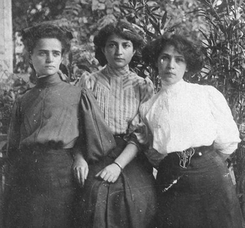
Three Weizmann sisters. Thanks to Russian Jews like the Weizmann sisters, Europes universities began to open their doors to women. Anna (left) studied chemistry at Zrich university. Minna (center) and Masha (right) attended medical school in Zrich and Berlin. Minna Weizmann earned an MD degree from Berlin in 1913. Courtesy of Yad Chaim Weizmann, Weizmann Archives, Rehovot.
List of Illustrations
Three Weizmann sisters | vii |
Admission document for Feiga Lifschitz | |
Lydia Rabinowitsch-Kempner | |
Ph.D. award ceremony for Elsa Neumann | |
Book cover, University Girls | |
Medical students at Bern University | |
Title page of Sara Rabinowitschs dissertation | |
First graduating class of gymnasium Herzlia | |
Feinberg family | |
Rahel Hirsch | |
Abitur diploma, Elise Ebstein | |
Marie Munk | |
Schoolteachers certificate, Elise Ebstein | |
Alice Salomon | |
Petition for admission to the Physikum examination, Elise Ebstein | |
Physikum diploma, Elise Ebstein | |
Luise Straus-Ernst | |
Rahel Goitein | |
Berlin medical students, dissecting a body | |
Kte Frankenthal | |
Else Weil | |
Charlotte Bhler | |
Hedwig Danielewicz | |
Margarete Bieber | |
Disbarment notification for Margarete Berent | |
Hanna Katz | |
Margarete Mhsam-Edelheim | |
Erna Simion | |
Book cover, How to Cook in Palestine | |
Acknowledgments
This book is a revised and expanded version of my dissertation. I am deeply grateful to my advisers, Michael Brocke and Monika Richarz, for their invaluable support and for believing in this project. I also wish to thank Jacob Neusner for making the English-language edition possible.
My thanks for their consistent moral support go to Deb Giffen and Simcha Raphael. I am grateful to Cathy Gelbin, Nikola Schirra, Barbara Schubert, Stephanie Voget, and Walburga Zumbroich for their help in reading the manuscript and for countless valuable suggestions. Many people have helped me by asking probing questions, by supplying source material, or by directing me to it. I particularly wish to thank Aleida Assmann, Meike Baader, Johanna Bleker, Gertrud und Lorenz Borsche, Marianne Brentzel, Mordechai Breuer, Allan Brockway, Jutta Buchin, Hugh Bushell, Iris Canor, Andrei Corbea-Hoisie, Iwona Dadej, Sigrid Dauks, Katja Deckert, Tamar Eshel, Harriet Freidenreich, Atina Grossmann, Hilde Grnfeld, Tina Heidborn, Margret Heitmann, Klaus Hermann, Jenny Heymann, Susanne Himmelheber, Hans George Hirsch, Claudia Huerkamp, Dagmar Jank, Regine Jensen, Stefi Jersch-Wenzel, Marion Kaplan, Johanna Kootz, Elisa Krauch, Esther und Gerhard Lauer, Violet Lutz, Nadav Man, Frankwalt Mhren, Gabriel Motzkin, Michael Olmer, Hartmut Rdiger Peter, Georg und Arnold Picot, Dalia Priver, Anja Quaeitzsch, Dietlinde Raisig, Julijana Ranc, Matthias Recke, Bernd Reifenberg, Gertrud Rgler, Nirit und Georg Rssler, Marion Rwekamp, Franziska Rogger, Joachim Schlr, Chana Schuster, John Segal, Dorothee Thum, Paul Ulrich Unschuld, Annette Vogt, Franz Volhard, Peter Thomas Walther, and Ruth Weill.
Dagmar Deuring not only created the index but was the best editor any author could wish for. I owe a very special debt of gratitude to Rebecca Hostettler Babbitt for proofreading the entire English manuscript.
This book is dedicated to my parents: to my father, Eike Christian Hirsch, and to the memory of my mother, Brigitte Freudenberg. When I was a little girl, she taught me how to read. And then she took me along on her lifelong journey of discovering and loving Judaism a legacy I hope to have proven myself worthy of. Gone from us much too soon, she only saw the preliminary stages of this book. My first written words were addressed to my father: the beginning of a correspondence that never ended. By letting me proofread his manuscripts and honoring my suggestions, he taught me early on that any form of writing is a conversation with the reader. This book, which he has read and improved on in many ways, is also the result of a conversation with this insightful and critical reader. I could not have asked for a better one.
Heidelberg, October 2012
Luise Hirsch
Introduction
One day, you will realize that I was right. As of today, Im pretty much on my own but a few years from now, it will be teeming with female graduate students everywhere. Thats the course of history mark my words!
Karl Emil Franzos, Latin Girls (1866)
Woman should get an academic education because she wants to, because being free to choose ones profession is a main factor of individual freedom, of individual happiness. Woman should go to university because knowledge and understanding are the most desirable goods on earth.
Hedwig Dohm, Womens Nature and Right (1876)
In 1910, the second volume of the Memoir of a Grandmother was published in Berlin. As the subtitle, Images from the Cultural History of the Jews of Russia in the 19thCentury suggests, the author, Pauline Wengeroff, did not merely intend to look back at her own life but to publish a quasi-scholarly study of Russian Jewry. The two-volume memoir became a minor best-seller among the Jews of late Imperial Germany who had begun to romanticize the world of Eastern European Jewry. Pauline Wengeroff wrote her memoir in Heidelberg where she spent the last years of her life. Born in 1833 in Bobruisk (Belarus), she married at seventeen into a chassidic family in Konotop (Volhynia, present-day Ukraine). Contrary to Eastern European Jewish custom, Wengeroff did not spend her first years of marriage in her parents home but with her husbands extended family. In her book, she describes her in-laws in detail. Her father-in-law was a wealthy brandy merchant but the grandmother-in-law took a very active part in the business. Besides, she acted as a volunteer midwife and village doctor: The two busiest people in the house were my father-in-law and the grandmother. In spite of her advanced age, the old woman oversaw a big household. Apart from cooking, she had many other things to do since all day, people would come to her for advice and support. She practiced midwifery and always assisted the poor. Almost every day, you could see her surrounded by a crowd on her way back from the synagogue.... Most of these people she would send home with some kind and caring words but those in dire straits were allowed to follow her to the house. There, she would first check on the household, eat a bite, then go into the office to oversee the business affairs. She would return hastily, throw on her overcoat and hurry off to the woman in labor. She gave medical assistance to Jews and Christians alike. She knew a great number of treatments and remedies. You might say about the grandmother that like a successful doctor, she had a big practice. Of course she was also busy at night. Her bedroom, where she kept a medicine cabinet, had a little window that people could knock on at any time if she was needed by a woman in childbirth. She was a wonderful woman. After coming home from a night-time delivery, she often would not even rest but go straight to work, quickly taking care of the household and then spending the rest of the day in the business office. Her husband ...was completely devoted to her. He recognized her absolute superiority and deferred to her in everything. It is true that he too was active in the business but the final decisions were hers.

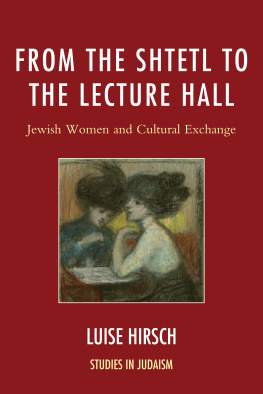
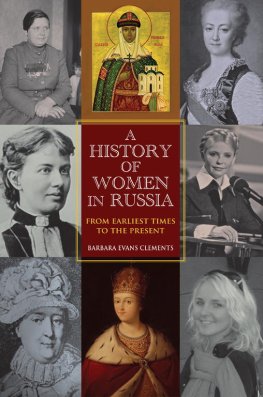

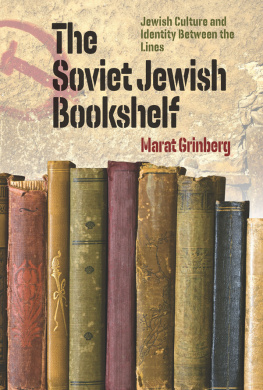
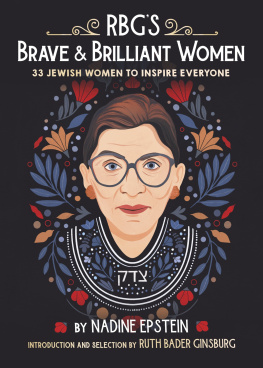

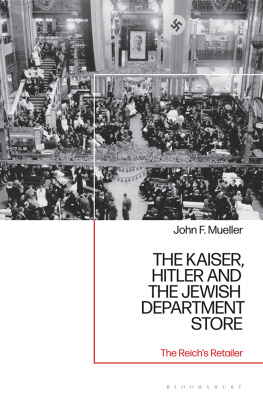
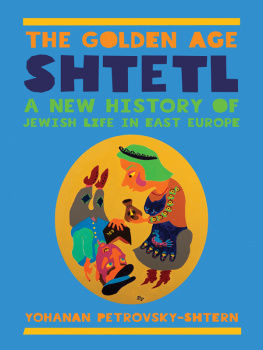
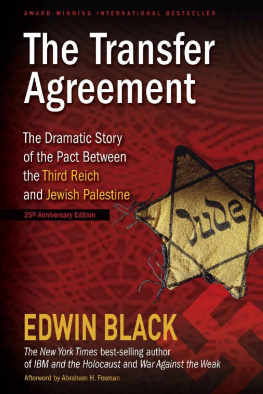
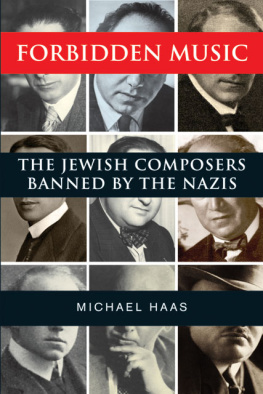
 The paper used in this publication meets the minimum requirements of American National Standard for Information Sciences Permanence of Paper for Printed Library Materials, ANSI/NISO Z39.48-1992.
The paper used in this publication meets the minimum requirements of American National Standard for Information Sciences Permanence of Paper for Printed Library Materials, ANSI/NISO Z39.48-1992.